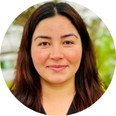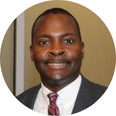LEAD Reverse Mentoring Pair
Kavita Rawat and Titus Reaves
 Kavita Rawat, PhD, Reverse Mentor
Kavita Rawat, PhD, Reverse Mentor
Kavita Rawat is a senior scientist at Washington University in St. Louis, School of Medicine. Her project focuses on developing immunotherapies for metastatic castration-resistant prostate cancer by enhancing immune infiltration into the tumor microenvironment. Rawat completed her doctorate collaboratively at the Central Drug Research Institute and AcSIR in India. Following that, she pursued postdoctoral studies at the Geisel School of Medicine, Dartmouth College, and subsequently worked there as a research scientist. Rawat is actively working toward becoming a cancer immunologist team leader. She enjoys running outdoors and spending time with her husband and 3-year-old daughter in her free time.
What new skills do you seek to gain as a reverse mentor?
Rawat: As a reverse mentor, my primary goal is to develop the skills needed to create a supportive learning environment for my mentee. I am dedicated to understanding and addressing their individual needs through clear communication. My focus includes fostering inclusivity and meeting the unique requirements of both mentees and group members.
How is mentoring important to your career development?
Rawat: I am actively striving to evolve into an independent group leader, recognizing that mentoring plays a pivotal role in my career development. To foster effective collaboration and contribute to our collective growth, I aim to create a specialized environment where everyone feels supported and encouraged. This mentoring approach not only aligns with my career aspirations but also enhances my leadership capabilities for long-term success.
How does diversity and inclusivity impact your leadership style?
Rawat: Diversity and inclusivity significantly shape my leadership style, guided by the belief that science serves as a unifying force worldwide. Acknowledging diversity as a strength, I strive to cultivate an inclusive environment. This perspective informs my leadership approach, ensuring that diverse perspectives are valued and embraced. By fostering inclusivity, I aim to harness the collective strength of varied backgrounds and perspectives, ultimately contributing to a more innovative and collaborative team dynamic.
Kavita Rawat is a member of American Association of Immunologists, a FASEB member society.
 Titus A. Reaves, PhD, Reverse Mentee
Titus A. Reaves, PhD, Reverse Mentee
Titus A. Reaves is an associate professor of cell biology and anatomy. For the past 24 years, he has taught medical students the anatomical basis of medicine. For the last four years, he has taught gastrointestinal physiology to medical students and organized medical imaging for such students. In that capacity, Reaves oversees radiologists' lectures on X-rays, MRI, CT, nuclear medicine, and fluoroscopy. Reaves also participates in a research program on how the immune system functions in the GI tract.
What new skills do you seek to gain as a reverse mentee?
Reaves: One of the aims is to acquire the skill of listening to students' needs as they traverse the challenges of graduate school. While I was a student, times and generations changed. I like to be at the forefront of helping such students matriculate. I understand the pitfalls and desperately want to share such information.
How is mentoring important to your career development?
Reaves: Mentoring is an essential component of any career. However, mentoring is vital to achieving success in academic medicine. Throughout my career, I have had the privilege of great mentors at every level. These experiences have allowed me to understand the process further, and I want to share such information with future generations. Being a mentee gives me the opportunity to experience the other side.
How does diversity and inclusivity impact your leadership style?
Reaves: Fortunately, I have had the privilege of directing the Ernest Everett Just Symposium, where we both honor and recruit predominantly minority students into one of our six colleges of education. This position has allowed me to understand further what students from historically excluded groups need and has contributed to any success that I have achieved. I also direct a foundation under the same name. Ernest Everett Just was a famous African American scientist from Charleston, South Carolina, who made it to the top of his profession. We use his name to recruit students. Diversity is very important because our country is very diverse. A diverse country lifts all boats.
Titus A. Reaves is a member of American Association for Anatomy and American Society for Investigative Pathology, FASEB member societies.